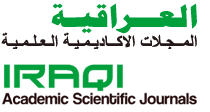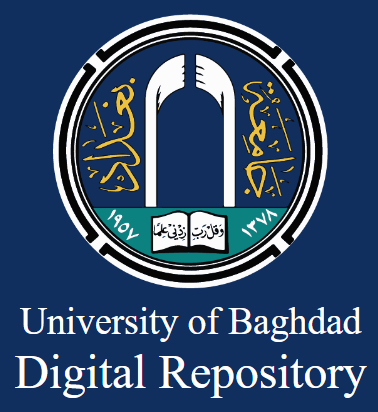The effectiveness of the constructivist learning model in acquiring the Institute of Fine Arts' students of artistic analysis skills
اخلاص عبد القادر طاهر
DOI:
https://doi.org/10.35560/jcofarts96/341-362Abstract
The constructivist learning model is one of the models of constructivist theory in learning, as it generally emphasizes the active role of the learner during learning, in addition to that the intellectual and actual participation in the various activities to help students gain the skills of analyzing artistic works. The current research aims to know the effectiveness of the constructivist learning model in the acquisition of the skills of the Institute of Fine Arts for the skills of (technical work analysis). To achieve the goal, the researcher formulated the following hypothesis: There are no statistically significant differences between the average scores of the experimental group students in the skill test for analyzing artworks before and after.
The theoretical framework included the concept of constructivism and the structural model and its stages, as the researcher presented the taste and analysis of technical work and has adopted in its procedures the experimental one-group approach with two tests (pre-dimensional), as it is the most appropriate approach to achieve the goal of the current research. The research community consisted of male (2264) students of institutes of fine arts for the academic year 2019-2020. The basic research sample chose: The Institute of Fine Arts - the first Rusafa, numbering (30) students, where the choice was made for the fifth stage students - Design Department, after conducting the simple random lottery and conducted the pre-skill test to determine the levels of students in the artistic taste analysis Technical works and comparing its bicycles to the post-skill test scores. The researcher also prepared a form to evaluate the skill performance of students in their implementation of the requirements of the skill test consisted of (10) paragraphs for which he specified a five-point scale, and thus the total score obtained by the student in his analysis of the technical work is equal to (50) stairs . It was presented to the experts, and in light of their observations, it became usable and after honesty and consistency were achieved for them, it was applied to the basic sample of the research. Statistical methods were used; the researcher used the statistical bag (spss) to process the data. After applying the skill test, the results indicated the appearance of a difference in the average score of the experimental group between the pre and posttests, and the direction of this difference referred to the post skill test, due to the sequence followed in students' learning and their acquisition of technical analysis skills according to the constructive learning model.
Based on the results that have emerged, the researcher concludes the following:
1- The ability of the constructive learning model to acquire cognitive information in the technical taste subject for fifth stage students.
2- The emergence of capabilities and capabilities of the fifth stage students in the analysis of technical work after they have acquired the steps of analysis according to the analytical premises of the structural approach.
The researcher suggested conducting the following studies:
1- Conducting a comparative study of the constructive learning model and other forms of learning to determine which is more effective in acquiring technical work analysis skills.
2- Carrying out similar studies to the current study, according to other modern monetary approaches, such as semiotic, deliberative, and deconstructive.
Key words: effectiveness - constructive learning model - acquisition - skill - analysis - technical work.
Date of receipt: 18/3/2020
Date of acceptance: 10/5/2020













